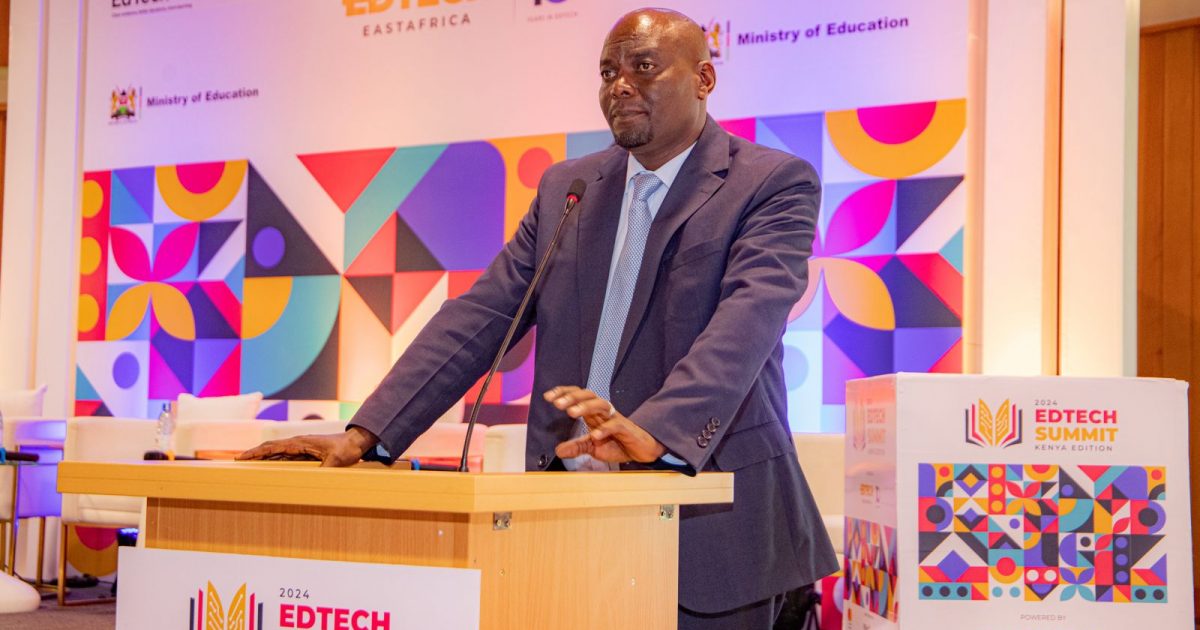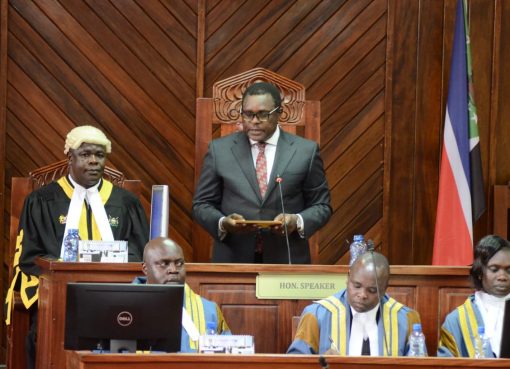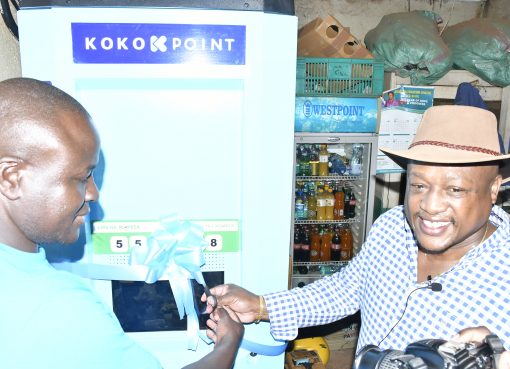EdTech East Africa has held its 3rd Summit in partnership with the government and private sector with the aim of enhancing cutting-edge technologies in classrooms and fostering a culture of continuous improvement in the education sector.
The key highlights at the two-day summit held on September 13th–14th, 2024, include the introduction of digital learning platforms that broaden access to quality education, the integration of Artificial Intelligence (AI)-driven tools, and the development of mobile applications that extend education resources to remote communities.
Speaking at the event, Basic Education Principal Secretary and Chairperson of the Education and Assessments Management Committee, Dr. Belio Kipsang, said that the government recognises the transformative potential of education technology in shaping the future of youths and the nation.
“We are committed to supporting organisations like EdTech East Africa that are driving innovation in education by ensuring that every learner, regardless of their background, has access to the tools and skills they need to thrive in the digital age,” he stated.
In a speech read on his behalf by the Deputy Director of Education in charge of Information, Communication, and Technology (ICT4E) Francis Karanja, the PS noted that the country is at the critical juncture in the efforts to modernise education.
Dr. Kipsang conferred on how the National Education Management Information System (NEMIS) and the Kenya Education Management Information System (KEMIS) are laying the groundwork for a more data-driven, equitable, and accountable education system and also explored how the systems align with the National Education Sector Strategic Plan (NESSP) 2023-2027, a blueprint for the future of Kenyan education.
He termed KEMIS as an essential pillar of Kenya’s digital transformation in education, as it allows for real-time data collection on student enrolment and attendance and offers an unprecedented level of visibility into the education landscape in addressing disparities in resource allocation and improving the overall quality of education.
While NEMIS serves as a backbone for data collection, currently it supports the digital registration of learners in the learning institutions by ensuring transparency in the distribution of resources such as Free Primary Education (FPE) and Free Day Secondary Education (FDSE) funds, enabling the government to allocate resources more efficiently.
The PS noted key priorities under the NESSP 2023-2027 include an expansion of NEMIS to incorporate learners from preprimary, Technical and Vocational Education and Training (TVET), and higher education institutions in order to broaden understanding of the entire education ecosystem and ensure that all sectors are adequately supported.
“As the system has been extended, challenges must also be addressed, including system maintenance, security, and capacity constraints. A robust legal and institutional framework is underway to protect the integrity of these systems,” he said.
“The NESSP highlights the importance of integrating Monitoring, Evaluation, and Reporting (MER) mechanisms and providing equitable access to quality education across all education programmes,” said PS, adding that doing so simplifies for the government to assess the impact of various initiatives and make adjustments where necessary.
Additionally, he said that, improvement in resource allocation, enhancement of governance, and guaranteeing that no learner is left behind will strengthen data systems and ensure they are integrated into every aspect of education management.
“As we look to the future, we must remain committed to the principles outlined in the NESSP 2023-2027: equity, inclusivity, and excellence. By fully integrating KEMIS into our education framework, we can ensure that every decision we make is informed by data, and every action we take brings us closer to a more equitable and prosperous future for Kenya’s learners,” said PS.
He urged stakeholders to work together to build an education system that serves every child in every region with the resources needed and opportunities deserved. By embracing technology and data-driven strategies, we are laying the groundwork for a brighter and more equitable future.
EdTech CEO Jennifer Cotter noted that the first Nairobi EdTech Meetup has evolved into a thriving community and the formation of EdTech East Africa has led to collective achievements and the harnessing of the power of collaboration with the government of Kenya, the private sector, and educational institutions.
“Since 2014, we have supported over 5,000 people to gather in over 60 gatherings, creating spaces for EdTech innovators and enablers to learn, share, and collaborate. In partnership with the MasterCard Foundation, it gives a platform for entrepreneurs, innovative practitioners, and policymakers to share their stories of what’s working and discourse our collective vision for the future,” she said.
By Sharon Atieno





